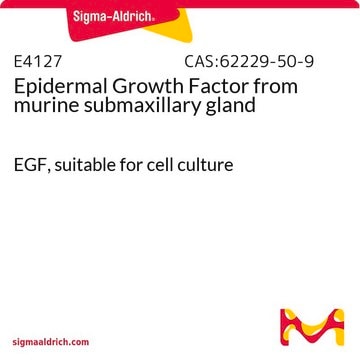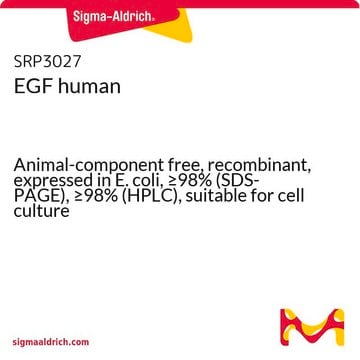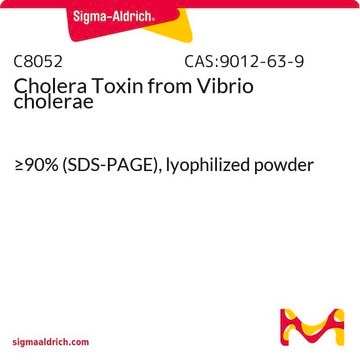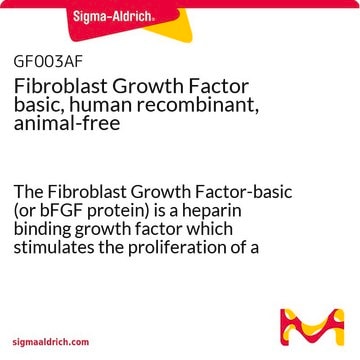GF144
Epidermal Growth Factor Protein, Human recombinant
The Epidermal Growth Factor (EGF) is a polypeptide growth factor which stimulates the proliferation of a wide range of epidermal & epithelial cells.
Synonym(s):
EGF
About This Item
Recommended Products
Quality Level
Assay
>98% (SDS-PAGE)
specific activity
≥1 x 10^7 U/mg
manufacturer/tradename
Chemicon®
impurities
<0.1 ng/μg Endotoxin (of EGF; 1EU/μg)
input
sample type neural stem cell(s)
sample type epithelial cells
sample type mesenchymal stem cell(s)
NCBI accession no.
UniProt accession no.
shipped in
dry ice
Related Categories
General description
Application
Linkage
Physical form
Storage and Stability
Analysis Note
Legal Information
Disclaimer
Storage Class Code
11 - Combustible Solids
WGK
WGK 3
Certificates of Analysis (COA)
Search for Certificates of Analysis (COA) by entering the products Lot/Batch Number. Lot and Batch Numbers can be found on a product’s label following the words ‘Lot’ or ‘Batch’.
Already Own This Product?
Find documentation for the products that you have recently purchased in the Document Library.
Protocols
Cultivate ReNcell® human neural stem cells in 3D hydrogels for high-throughput screening using the TrueGel3D® HTS Hydrogel Plate with this protocol.
Related Content
This article shows that a PES membrane containing Stericup Quick Release filter provides an alternative for the pluripotent expansion of embryonic stem cells.
Our team of scientists has experience in all areas of research including Life Science, Material Science, Chemical Synthesis, Chromatography, Analytical and many others.
Contact Technical Service








